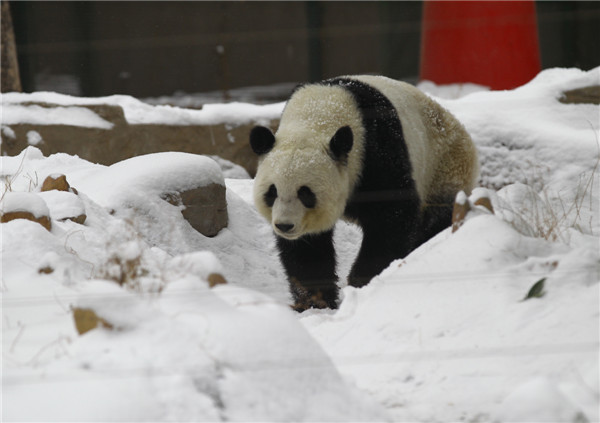 |
|
The death of Jinyi, a panda at Zhengzhou Zoo, is being investigated. Bai Zhoufeng / for China Daily |
Generally, young pandas are vulnerable to intestinal diseases, and older ones don't do well in hot weather. Pandas generally are more susceptible to ailments in the rainy season and in hot weather, such as the past unexpectedly warm winter in China, Feng said.
The park's panda house is located in a mountain valley to avoid high temperatures in the dry season. It provides a playground of 400 square meters and two specially designed wooden beds for the animals. Bamboo is provided each night as a snack.
Kunming, dubbed "Spring City" by many Chinese, has a perfect climate for the pandas, Feng said. The park purchases fresh bamboo from local farmers or from neighboring cities in Sichuan to make sure the quality is high.
Each morning, Feng and his colleagues spend at least three hours cleaning the panda house. "We have to pick up all the bamboo leftovers on the ground and on the bed. All the waste must be taken out of the house and burned to ensure that any parasites won't survive. In addition, keepers are required to check the animals' excrement to detect any change in color or smell," Feng said.
Parasites can cause pandas to vomit. "If that occurs, the veterinarian must take urgent measures," Feng said. The presence of parasites could indicate that keepers failed to keep the pandas' biggest enemy at bay, he said.
Veterinarian Li Caiwu said that tissue and fluid samples from Jinyi, the dead female panda, have been sent to a research center in northeast China's Jilin province for testing. The results of those tests will be needed before experts can determine with certainty what caused her death.
Contact the writers at huyongqi@chinadaily.com.cn and yangyangs@chinadaily.com.cn
Qi Xin and Zhang Yuchen contributed to this story.
|
|
|
|
|
|
|
|
